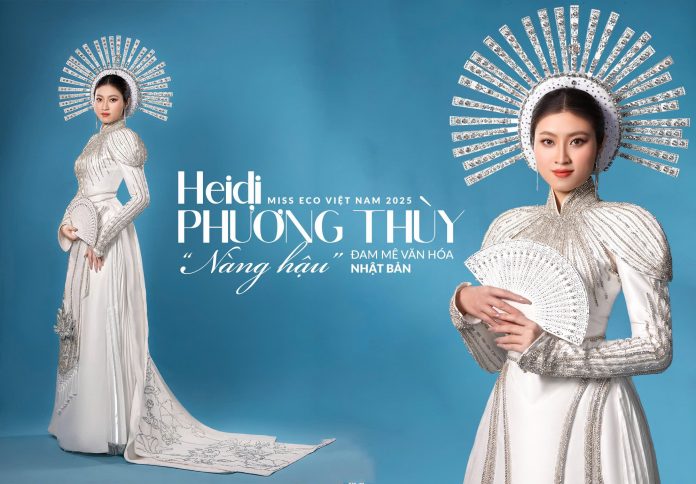Sotheby’s has halted a highly controversial auction of a rare collection of jewels believed to be linked to the remains of the Buddha, following strong objections from the Indian government. The auction house cited concerns raised by Indian officials and agreed to postpone the sale to allow for further dialogue between the parties involved. The jewels, which were slated for sale in Hong Kong, are considered sacred relics by many Buddhists worldwide, sparking an intense debate about cultural heritage, ownership, and colonial legacies.
The jewels and their profound significance
The jewels in question—comprising amethysts, pearls, carnelians, shells, and embossed gold sheets—were originally discovered over a century ago in northern India. In 1898, British colonial engineer William Claxton Peppé unearthed these “gem relics” during an excavation at his estate in the village of Piprahwa, close to the Buddha’s birthplace in Nepal. These precious artifacts are believed to be associated with the corporeal remains of the Buddha, making them objects of deep religious reverence.
Sotheby’s had described the collection as possessing “unparalleled religious, archaeological and historical importance.” The discovery was considered a landmark in Buddhist archaeology, marking the first credible modern finding of the Buddha’s relics. An inscription on one of the urns indicated that the remains belonged to the Buddha himself, whose ashes were divided and buried across eight separate sites following his death.
India’s response and the auction’s postponement
India’s Ministry of Culture swiftly condemned the auction, calling for immediate measures to halt the sale and demanding the return of these sacred artifacts. The ministry stressed the illegality of the auction and highlighted the need to comply with international cultural property laws. Following these official objections, Sotheby’s announced the postponement of the auction, which was supported by the sellers, to facilitate discussions aimed at resolving the dispute.
In a public statement, the ministry welcomed the auction house’s decision and promised to share further details as talks progressed. The move underscores the Indian government’s strong commitment to reclaiming cultural heritage and protecting objects of spiritual and historical importance from commercial exploitation.
The legacy of the relics and their global journey
The jewels being auctioned represent only a fraction of the original find by Peppé. The larger portion of the relics—comprising bone and ash fragments—was gifted to King Chulalongkorn of Siam (modern-day Thailand) by the British and has since been distributed among prominent Buddhist sites in Thailand, Myanmar, and Sri Lanka. The majority of the gemstones were sent to an Indian museum in Kolkata, while a smaller share remained with Peppé’s descendants.
For decades, the relics have inspired fascination among Buddhist scholars and devotees, who regard them as tangible connections to the Buddha. However, their presence in private hands and the prospect of a commercial auction have provoked criticism and accusations of ongoing colonial exploitation.
Controversy and calls for repatriation
Several historians and experts have publicly criticized the planned sale, framing it as an act of commodifying sacred religious heritage. Karam Tej S. Sarao, former professor of Buddhist Studies at the University of Delhi, called for the relics to be returned immediately to India and enshrined at the Piprahwa Stupa, where they belong. Similarly, scholars from SOAS, University of London, condemned the auction as “perpetuating colonial violence” and emphasized the spiritual significance of the relics as more than mere historical artifacts.
Chris Peppé, great-grandson of William Claxton Peppé, currently holds possession of the jewels. Since inheriting them in 2013, the family has aimed to increase public access to the relics through exhibitions and scholarly research. Despite these efforts, interest from the Buddhist community has been limited, leading the family to consider auctioning the items as a potential way to bring them into the spotlight and benefit Buddhist institutions.
The path forward: Dialogue over dispute
The auction’s postponement reflects the complex issues surrounding cultural property, colonial history, and religious respect. Sotheby’s decision to delay the sale allows for meaningful discussions among the sellers, Indian authorities, and other stakeholders, signaling a willingness to find a resolution that honors both heritage and religious sentiments.
Chris Peppé expressed hope that proceeds from the sale—if it proceeds—would support Buddhist institutions and enhance public access to the main Piprahwa collection, which has not been publicly exhibited. As conversations continue, this case highlights the broader global conversation on repatriation and the stewardship of culturally significant artifacts.
In a world increasingly aware of cultural sensitivity and historical justice, the Sotheby’s postponement serves as a reminder of the responsibility shared by collectors, institutions, and nations in preserving sacred treasures — not as commodities, but as irreplaceable legacies of human history and faith.










